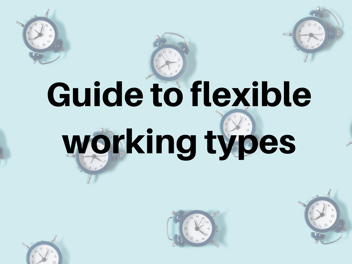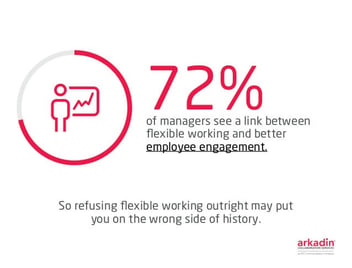Flexible working formats: freelancing
When we revealed this year’s client and Member research, one of the popular flexible working formats was freelance or contract work. So what is freelancing and how does it work in practice?
We talk to freelance copywriter Katie about the benefits of this flexible working option, plus what you need to think about if you’re considering taking the freelance plunge.
Q: What made you become a freelancer?
“I’ve freelanced for eight years now. It’s great to be able to earn money on my own terms. It became pretty clear early on in my career that I thrive when I’m presented with new challenges and fresh environments.
Once I’d reached a level where I was essentially ‘senior’, it became easy to make the leap to freelance life. Sure, we’re always learning in our careers, but if you’re still developing your craft in a creative industry, it’s probably best to work alongside more senior people who can teach you a thing or two.”
Q: Can anyone be a freelancer?
“Businesses usually turn to freelancers to provide additional resource in the heat of the moment – so they need people to come in and just get on with the job in hand. And above all, they need you to be good. The term freelancer is usually used in the creative industries like advertising, marketing and television, but they exist in other industries, just under other names like relief teachers, IT contractors, interim FDs or locum doctors.
As a freelancer, you’re expected to walk into a role and hit the ground running. You need to have confidence in your ability and be ready to deal with the unknown. And it helps if you are articulate and friendly: everyone likes a good tea maker and no one likes a moaner!”
Q: Don’t freelancers make more money than employees?
“This is a bit of a myth actually. It’s true; you do usually get paid well for being available at the drop of the hat and for sorting out your own tax. But your earning potential can be lower than a normal employee as you don’t get paid for holidays or sick leave.
You won’t have the same benefits as an employee either, and you must save your tax and National Insurance contributions. In addition, you have to pay for an accountant and business bank account. All of this can add up.”
Q: Do all freelancers work from home?
“Some freelancers work from home but not all; those who do usually request to work remotely before taking a brief. This can save both the employer and the freelancer time and money, but it can also have its drawbacks.
If you enjoy office banter, or if you struggle to be self-motivated without having the eyes of colleagues on you all day, it might not be for you. That’s why Twitter and social media are jam-packed with freelancers: it’s their water cooler equivalent of office down time.”
Q: What’s the worst thing about being a freelancer?
“As with anything in life, there are always pros and cons to working in a certain way. Some freelancers find looking for work the hardest part of the job. Others might say it’s chasing invoices. It really depends who your clients are and how lucky you are, I suppose.
My top tip is to get the brief in writing before you start working for someone new. I’ve never had an unpaid invoice, but it’s always worth doing your homework on a new client if you can, before accepting a job. You will always be juggling cash flow, so a decent business bank account and a low interest credit card are essential.”
Q: Any other tips for people thinking about taking the freelance plunge?
“I’d save up three months of pay cheques or thereabouts before starting out. It can take a while to become established so it’s good to have savings to fall back on. LinkedIn can be brilliant for finding leads, as can registering with recruitment consultants and attending networking events.
Otherwise, good luck and enjoy every minute of it. It’s an exciting way to work as you never know what one day holds to the next…”
To find out more about how we’re placing flexible workers in their ideal roles, please get in touch. We look forward to hearing from you.


 Back to resources
Back to resources 4 min read
4 min read








